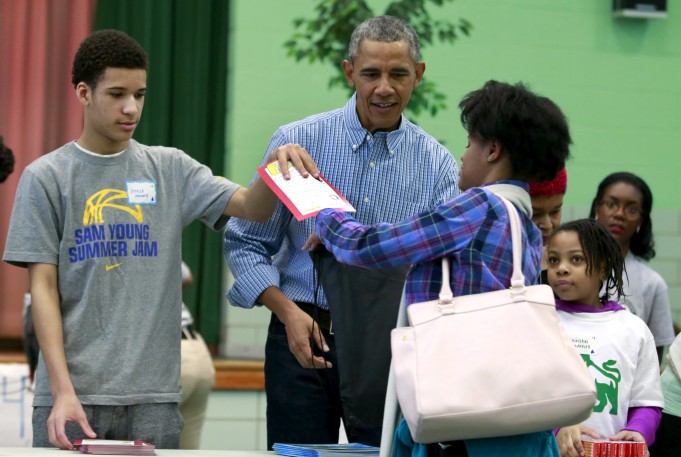The U.S. Supreme Court on Tuesday agreed to hear President Barack Obama’s bid to resurrect his plan to shield more than 4 million illegal immigrants from deportation, a unilateral executive action he took in 2014 to bypass the Republican-led Congress.
Obama’s action was blocked by lower courts after Texas and 25 other Republican-governed sued to stop it, contending he exceeded his presidential powers under the U.S. Constitution. The case will be argued before the high court in the coming months, with a ruling due by the end of June.
The case is not the first time Obama has asked the Supreme Court to rescue a major initiative. The court in 2012 and 2015 rejected conservative challenges to his signature healthcare law. The White House expressed confidence the court would now uphold Obama’s immigration action as lawful.
Texas Attorney General Ken Paxton, a Republican, said courts have long recognized the limits to presidential authority.
“The court should affirm what President Obama said himself on more than 20 occasions: that he cannot unilaterally rewrite congressional laws and circumvent the people’s representatives,” Paxton said.
The nine justices will review a November ruling by the New Orleans-based 5th U.S. Circuit Court of Appeals that upheld a February 2015 decision by U.S. District Judge Andrew Hanen in Brownsville, a city along the Texas border with Mexico, to halt Obama’s action.
With some of his major legislative initiatives suffocated by Republican lawmakers, the Democratic president has resorted to executive action to get around Congress on issues including immigration, gun control and the Obamacare healthcare law. The most recent executive action came this month when he acted unilaterally to expand background checks for certain gun purchases.
His executive actions have antagonized Republicans who accuse him of unlawfully taking actions by executive fiat that only Congress can perform.
Obama’s November 2014 executive order lifting the threat of deportation against more than 4 million illegal immigrants was directed at people with no criminal record whose children are U.S. citizens.
Those eligible would be able to work legally and receive some federal benefits. States were not required to provide any benefits. The order expanded on a 2012 program that provided similar relief for people who became illegal immigrants as children.
“Like millions of families across this country – immigrants who want to be held accountable, to work on the books, to pay taxes and to contribute to our society openly and honestly – we are pleased that the Supreme Court has decided to review the immigration case,” White House spokeswoman Brandi Hoffine said.
Obama’s moves were “consistent with the actions taken by presidents of both parties, the laws passed by Congress and the decisions of the Supreme Court, Hoffine added.
The case raises several legal issues, including whether states have legal standing to sue the U.S. government over decisions on how to enforce federal laws.
The high court added a separate question on whether the president’s guidance violates a provision of U.S. Constitution that requires the president to “take care that the laws be faithfully executed.”
BROAD REPERCUSSIONS
The case could have repercussions beyond immigration because it would set a precedent for the circumstances under which states can sue the federal government over a whole range of executive actions. Future presidents, Republican or Democratic, could face new constraints if the states win.
The case is one of the most important the Supreme Court will decide during its current term, along with a challenge to a restrictive Texas abortion law.
If the court sides with Obama, he would have until his term ends in January 2017 to implement the immigration plan. With the U.S. presidential election looming in November, it would be up to the next president to decide whether to keep it in place.
Obama’s executive action came after a bipartisan immigration policy overhaul bill passed by the Senate died in the House of Representatives.
The immigration issue has driven a wedge between Hispanics, a voting bloc with rising clout, and Republicans, many of whom take a hard line against illegal immigrants. Most of the estimated 11 million illegal immigrants are Hispanics, coming from Mexico and other Latin American countries.
Republican presidential candidates have talked tough against illegal immigrants. For example, businessman Donald Trump called illegal immigrants from Mexico rapists and criminals and has vowed to build a wall along the U.S.-Mexican border.
Senate Democratic Leader Harry Reid welcomed the court’s decision to hear the case and said Obama’s executive actions relied on well-established constitutional authority.
He said he recently met with the illegal immigrant parents of U.S citizens and lawful permanent residents, saying that “these law-abiding men and women continue to live in constant fear of being separated from their children. These families must be allowed to step out of the shadows and fully contribute to the country that they love and call home.”




























